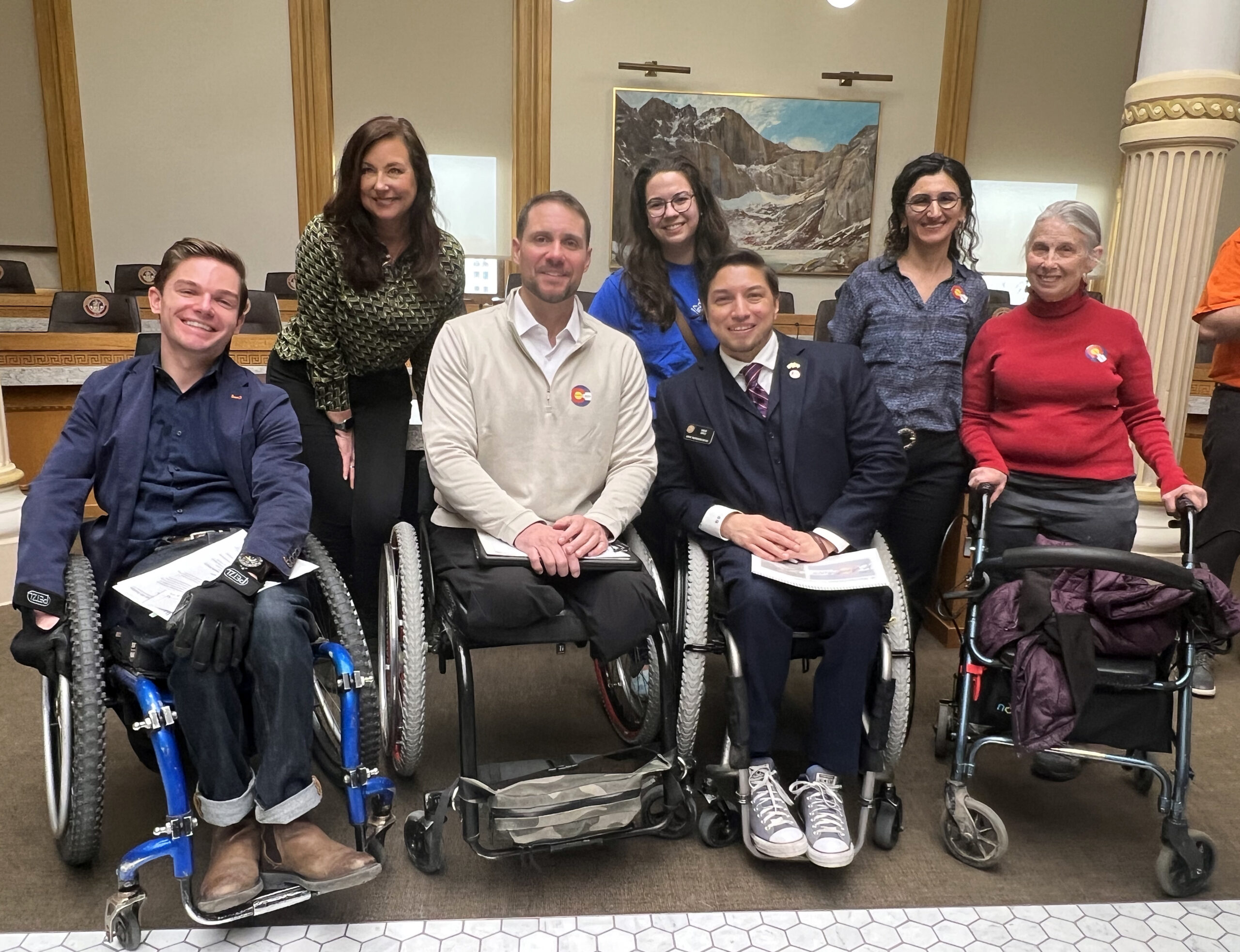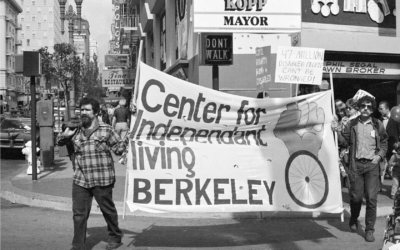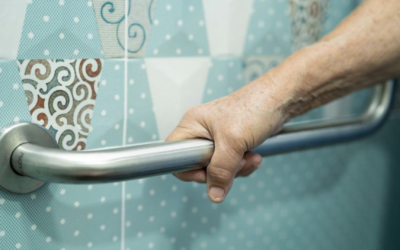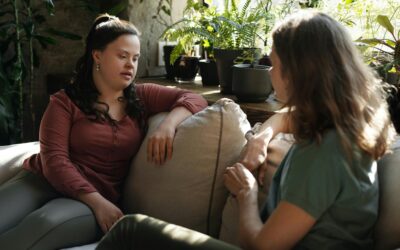Centers for Independent Living (CILSs) are unique disability service organizations born out of the Independent Living Movement. Unlike typical human services case management, which may “do for” an individual or dictate necessary tasks or activities, CILs strive to empower and educate the individual into self-direct advocacy and choice. A CIL is all about independence and independent living, and that cannot be attained if individuals are being told what to do. Resources, supportive services, access, equity, and accommodations may be necessary to maintain independence, but ultimately, CILs such as the Center for People With Disabilities (CPWD) focus on providing the skills training, empowerment, and connections that will enable people with disabilities to make what they determine to be the best choices for their lives and Independence. Learn more about what a CIL is here.
Today there are 9 CILs in Colorado and close to 400 across the U.S. But it wasn’t always this way. As discussed in previous articles [read here], the independent living opportunities of today, including protections and rights under the Americans with Disabilities Act (ADA) and other laws, were hard-won by pioneers in the independent living movement. Alongside Civil Rights activists and in their own political battles, notable people with disabilities rallied to break convention and pave the way for people with disabilities to engage in self-directed independence. One such hero was Ed Roberts, often referred to as the father of independent living.
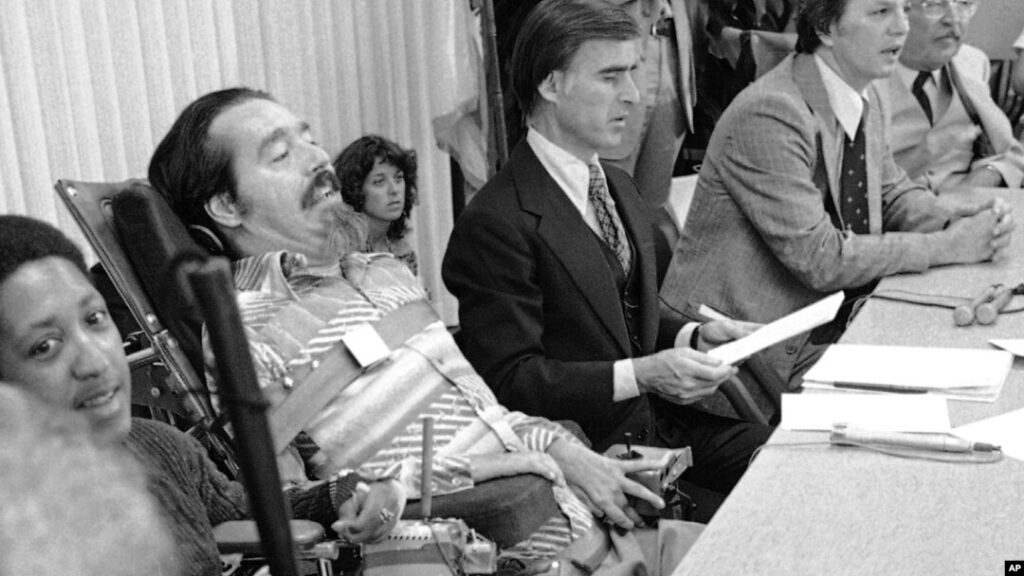
Image description: In this black and white photo, Ed Roberts sits in his wheelchair at a table. In his mouth is a breathing tube. He has a strap across his chest. Several other people sit around him, such as men in suits and other people behind observing.
At 14-years-old, Ed contracted Polio. He survived but was fully paralyzed from the neck down with the exception of 2 fingers and a few toes. He needed an iron lung to breathe. He was intelligent and ambitious. In 1962 he applied and was accepted to the University of California, Berkeley. But when they found out he used an iron lung, they rejected his admission. He appealed the decision and ultimately won, and went to college, becoming one of – if not the first – person with a significant disability to go to a mainstream university. While there, he formed a social and advocacy group of people with disabilities called The Rolling Quads, which advocated for rights, equity, and supportive services. He soon realized that while on-campus activism was very helpful, an off-campus community and resource center was also essential.
In 1972, Ed and his compatriots opened the first CIL in Berkeley, California: the Berkeley Center for Independent Living. Their founding values were dignity, peer support, consumer control, civil rights, integration, equal access, and advocacy. To this day, and some 400 CILs later, these values remain at the center of the Independent Living philosophy and services. Learn more about Ed’s life here.
Now in 2023, CPWD and other CILs are carrying forward the values inspired by the Berkely group into a new era. The world has changed; we have the internet, varying political and economic environments, a growing awareness of and respect for individuality and difference (at least in the U.S.), laws and lawmakers – as well as nonprofits and citizen groups – advocating for independent living and the rights of people with disabilities.
At CPWD, our mission is to assist people with disabilities in overcoming barriers to independent living. In recent articles [History of CPWD] and [History of the ADA], we talked about our history, how we came to be, and some of the important work we are doing today. Perhaps an unsung aspect of the important work we do is our incredible board of directors. With varying times of tenure dating from the founding of CPWD in 1977 to just a year or two, every single member of our board is a person passionate about independent living and ensuring access to services and resources that promote independence. Our board makes high-level decisions such as approving budgets, building and program changes, important organizational changes, and how to respond to or adapt to major shifts such as economic crises or the pandemic. But they also bring first-hand experience: 63% of our board are persons with varying disabilities, and all of them have some connection to independent living. This month, we are happy and proud to share some reflections from our board of directors. We are grateful for their untiring commitment and dedication to independent living. Please watch this video featuring some of our board members.


